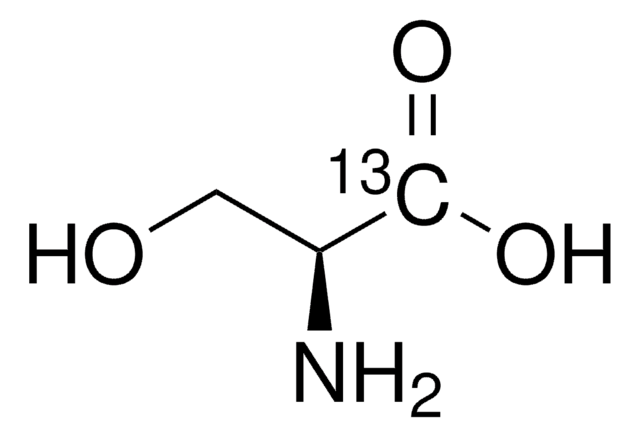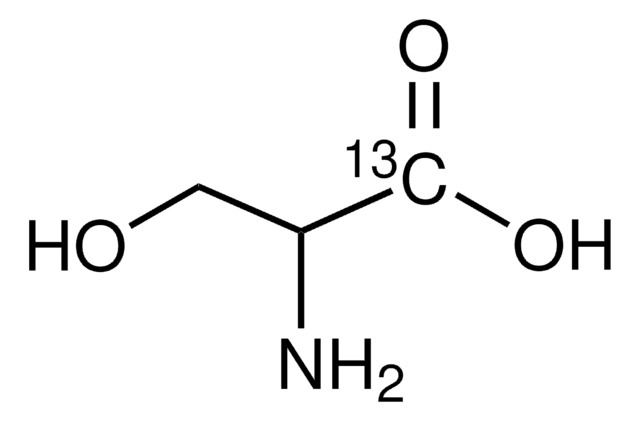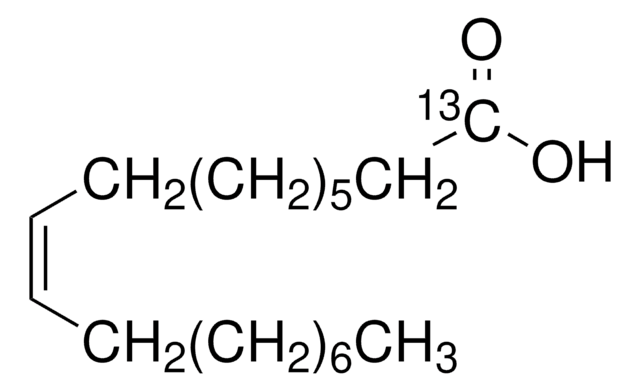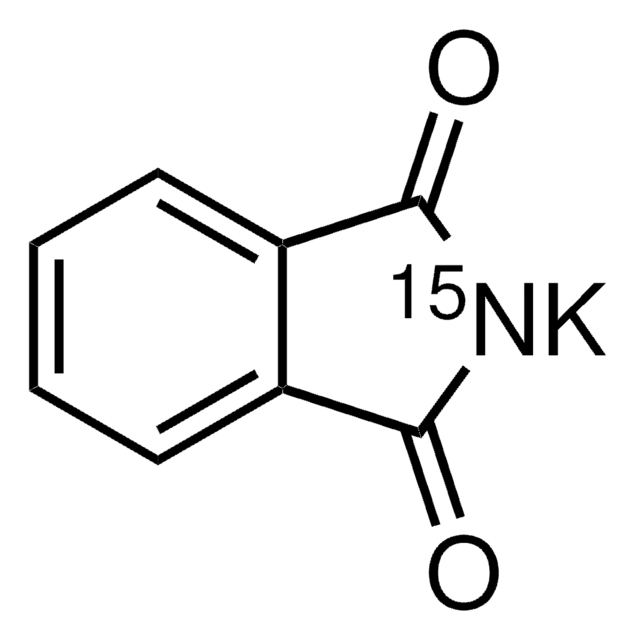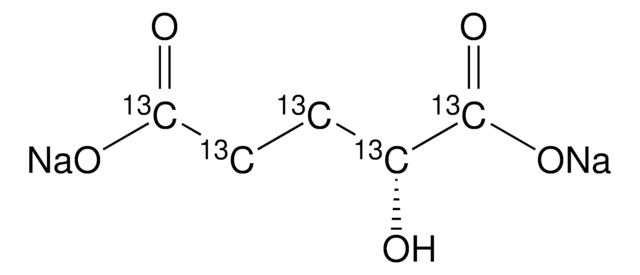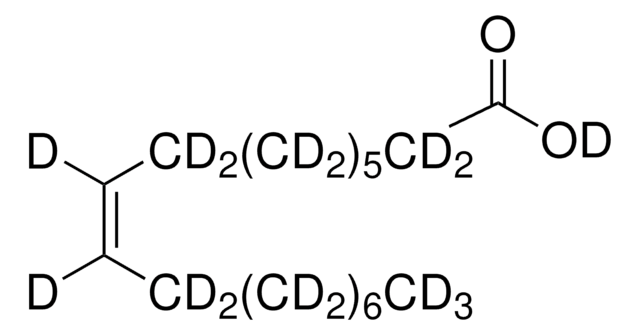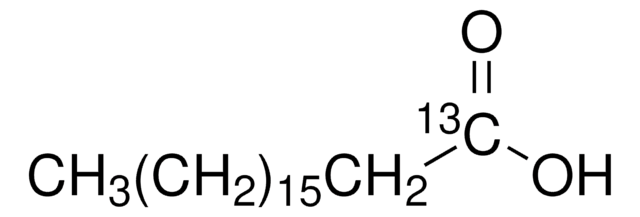490431
Oleic acid-13C18
≥99 atom % 13C, ≥99% (CP)
Synonym(s):
13C Labeled oleic acid, Elainic acid-13C18, Oleic acid-ul-13C
About This Item
Recommended Products
grade
analytical standard
Quality Level
isotopic purity
≥99 atom % 13C
assay
≥99% (CP)
refractive index
n20/D 1.4595 (lit.)
bp
192-195 °C/1.2 mmHg (lit.)
mp
13.4 °C (lit.)
density
0.947 g/mL at 25 °C
format
neat
mass shift
M+18
storage temp.
−20°C
SMILES string
[H]\[13C]([13CH2][13CH2][13CH2][13CH2][13CH2][13CH2][13CH2][13CH3])=[13C](/[H])[13CH2][13CH2][13CH2][13CH2][13CH2][13CH2][13CH2][13C](O)=O
InChI
1S/C18H34O2/c1-2-3-4-5-6-7-8-9-10-11-12-13-14-15-16-17-18(19)20/h9-10H,2-8,11-17H2,1H3,(H,19,20)/b10-9-/i1+1,2+1,3+1,4+1,5+1,6+1,7+1,8+1,9+1,10+1,11+1,12+1,13+1,14+1,15+1,16+1,17+1,18+1
InChI key
ZQPPMHVWECSIRJ-IGBBIXMTSA-N
Looking for similar products? Visit Product Comparison Guide
Related Categories
General description
Application
Packaging
Quality
Storage Class
10 - Combustible liquids
wgk_germany
WGK 1
flash_point_f
235.4 °F - closed cup
flash_point_c
113.00 °C - closed cup
Certificates of Analysis (COA)
Search for Certificates of Analysis (COA) by entering the products Lot/Batch Number. Lot and Batch Numbers can be found on a product’s label following the words ‘Lot’ or ‘Batch’.
Already Own This Product?
Find documentation for the products that you have recently purchased in the Document Library.
Customers Also Viewed
Articles
Sigma-Aldrich.com presents an article about Stable Isotope labeled fatty acids and triglycerides can be used as tracers to follow the metabolism of dietary fat.
Sigma-Aldrich.com presents an article concerning MRI/MRS and the use of isotopes in hyperpolarization.
Dynamic Nuclear Polarization (DNP) is a phenomenon by which high spin polarization, typically derived from a bath of free radical electrons, is transferred to a nuclear spin bath, enhancing the difference between the nuclear energy levels and thereby producing dramatically enhanced NMR signals for detection.
Our team of scientists has experience in all areas of research including Life Science, Material Science, Chemical Synthesis, Chromatography, Analytical and many others.
Contact Technical Service